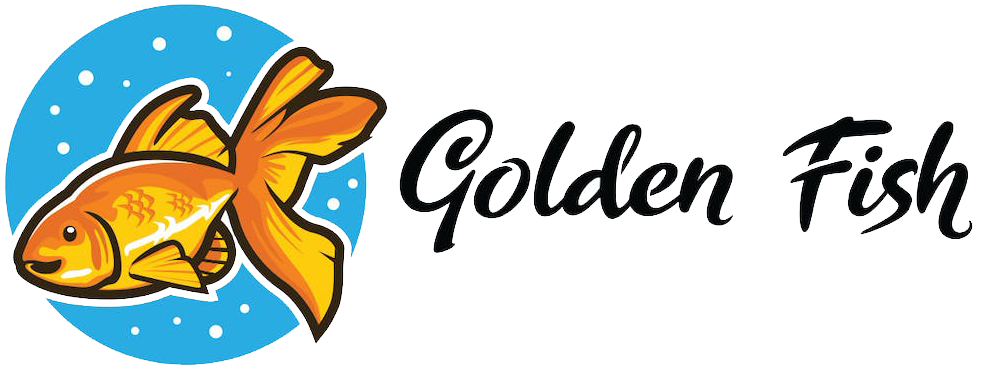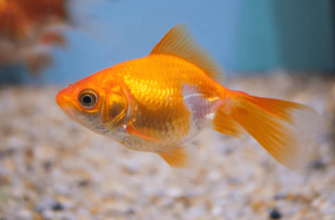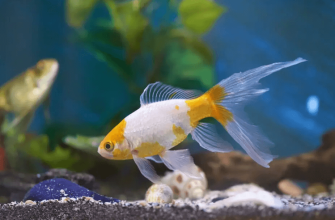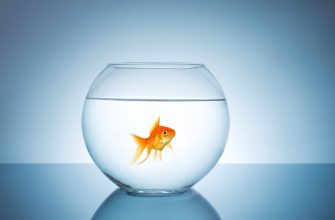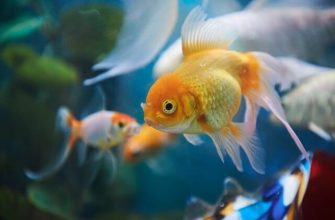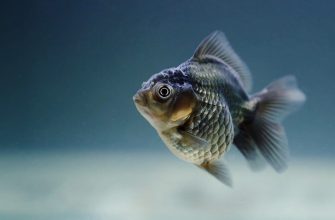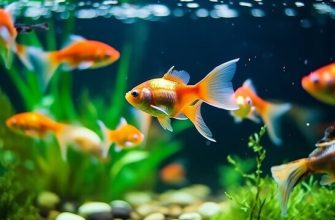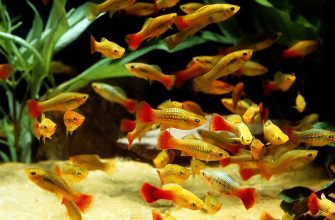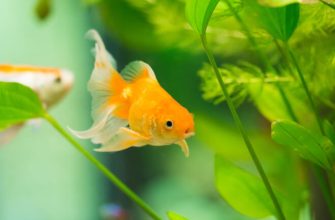Goldfish are one of the most popular pet fish, but what do these colorful creatures eat? As omnivores, goldfish will eat both plant and animal matter. In the wild, they forage on insects, crustaceans, plant matter and detritus. However, their captive diet tends to be less varied. Most goldfish owners feed commercial fish food flakes or pellets.
While this diet meets their nutritional needs, goldfish will also eat a diverse range of foods. Their hungry nature and lack of a stomach allows them to constantly graze on anything edible in their environment. This article explores what goldfish can and should eat in captivity, including whether they will eat small fish tankmates. With proper care, goldfish can thrive on a balanced diet.
Goldfish Diet in the Wild
Goldfish originated in eastern Asia, with their native habitat being freshwater rivers, lakes, and streams. In the wild, goldfish are opportunistic omnivores that eat both plant and animal matter. Their diet consists of insects, crustaceans, and vegetation found in their environment.
Goldfish forage along the bottom and middle depths of water bodies for food. They eat small crustaceans like daphnia, brine shrimp, and copepods. Aquatic insect larvae are also part of their diet. Goldfish will consume algae, duckweed, and other aquatic plants as well. Essentially, goldfish are scavengers that eat whatever organic materials they come across while searching for food. Their diverse wild diet provides the nutrition and protein needed for survival.
Goldfish Diet in Captivity
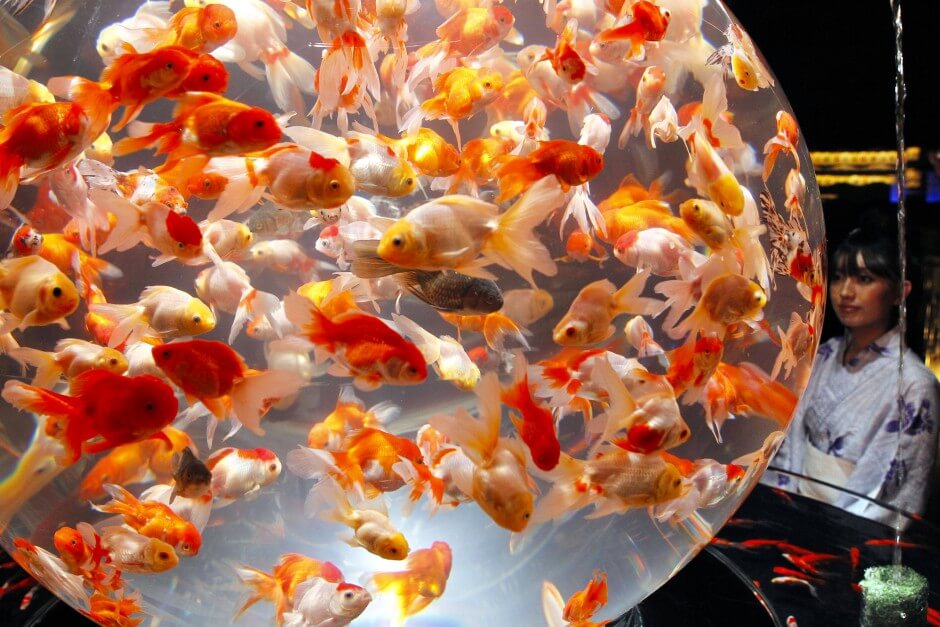
Goldfish kept as pets typically eat dried flakes or pellets formulated for omnivorous fish. These provide balanced nutrition and are convenient for owners to feed daily. Many goldfish enjoy supplements like frozen bloodworms, brine shrimp, and veggie mixes as treats.
This extra nutrition and variety helps maintain good health. It’s important not to overfeed pet goldfish. Give only enough food that they can consume within 2-3 minutes, 1-2 times per day. Uneaten food will dirty the water and lead to health issues.
Will Goldfish Eat Small Fish?
Goldfish are primarily herbivores and scavengers in the wild, feeding on plants, insects, crustaceans and detritus. However, they are opportunistic omnivores and can eat small fish if hungry. While goldfish have been observed eating baby fish in crowded pond environments where food is scarce, this should not comprise the bulk of their diet in captivity.
Goldfish do not actively hunt other fish and lack the proper dentition and predatory instincts to be effective predators. Any small fish consumed would likely be sick, injured or already dead. While goldfish may nibble at and harass slower moving fish, it is not recommended to house small fancy goldfish or baby fish with larger single-tail goldfish. The diet of pet goldfish should focus on plant-based foods with supplemental protein sources like shrimp, worms or commercial pellets to provide balanced nutrition.
Risks of Feeding Live Fish
Feeding live fish to goldfish does carry some risks that should be considered.
-
Nutritional imbalance – Feeder fish like guppies often lack proper nutrition and can lead to vitamin deficiencies if used as a staple diet. They do not provide balanced nutrition compared to high quality prepared foods for goldfish.
-
Introducing diseases – Feeder fish are often raised in high density conditions where disease can spread rapidly. Parasites, bacteria and viruses can be transmitted to your goldfish when ingesting feeders. Proper quarantine and observation should be done.
-
Injuries from prey fighting back – Goldfish can sometimes suffer injuries when eating live fish that fight back. Feeder fish may nip the fins and tails of goldfish as they are being eaten. Slow moving fancy goldfish are especially vulnerable.
Overall, feeder fish should only be an occasional treat due to the risks involved. When using feeders, choose healthy fish raised in clean environments and monitor for any signs of illness after feeding.
Alternative Live Foods
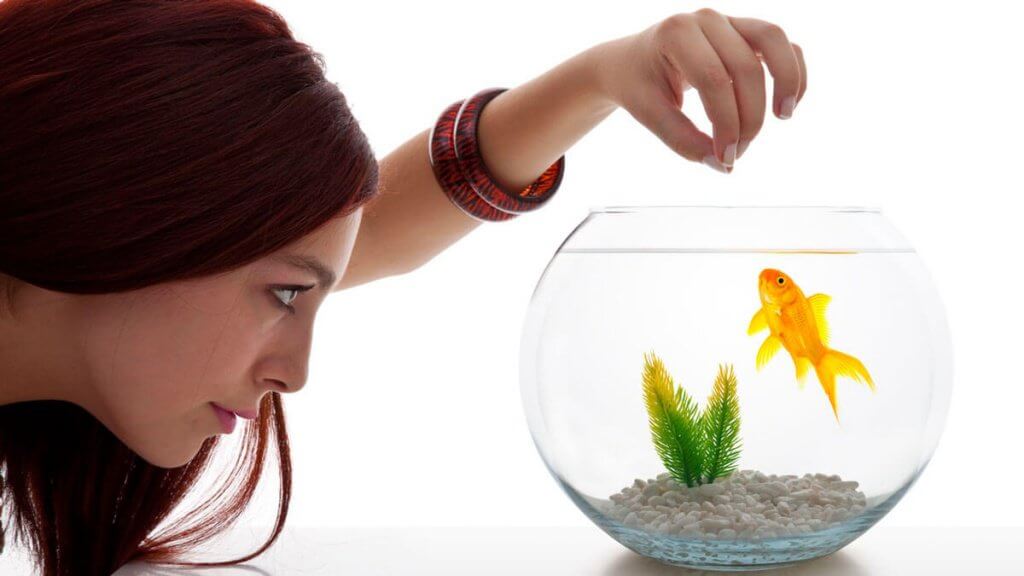
Goldfish enjoy live foods as part of their diet. Some nutritious live food options include earthworms, brine shrimp, daphnia, and tubifex worms. These foods contain nutrients like protein and fat to support goldfish health.
Earthworms make an excellent live food choice. They are high in protein and contain vitamins and minerals. Chop earthworms into bite-sized pieces before feeding to prevent goldfish from choking.
Brine shrimp are small crustaceans that are nutritious and easy to culture at home. They have high protein content to promote growth. Hatch brine shrimp eggs and feed newly hatched shrimp to goldfish.
Daphnia, also called water fleas, are small planktonic crustaceans. They contain nutrients like protein, fat, and carotenoids. Daphnia are a bit larger than brine shrimp and wiggle when dropped into the tank, triggering goldfish to hunt them.
Tubifex worms are aquatic worms that live in sediment. They are naturally found in ponds and streams. Tubifex worms are packed with protein but should be fed sparingly due to concerns about parasites. Rinse well and gut load before feeding.
These live foods provide more nutrition than plain fish flakes. Offer a variety for a balanced diet. Feed live foods as treats 2-3 times per week along with high quality pellet food.
Feeder Fish Guidelines
When feeding live fish to goldfish, it’s important to take precautions to keep the goldfish and tank healthy.
Only feed healthy feeder fish that show no signs of disease or parasites. Quarantine and treat feeders before introducing them to the main tank. This helps prevent introducing contagious illnesses.
Carefully monitor the tank while feeding live fish. Remove uneaten feeders promptly to prevent them from damaging tank inhabitants or water quality. Supervise feedings to ensure the goldfish eats the feeders completely.
Foods Goldfish Should Not Eat
Goldfish are omnivorous and will eat a variety of foods, but there are some foods that should be avoided. Meat, chicken, and insects are high in protein and fat and can be harmful if fed too often. According to experts, too much protein can cause digestive issues and damage a goldfish’s internal organs over time.
Some high-protein foods that should be limited or avoided entirely include:
- Meat, chicken, pork
- Insects like mealworms, bloodworms, crickets
- Fish like feeder fish or shrimp
- Eggs
- Nuts
- Cat or dog food
These foods may seem tempting as treats but can quickly lead to health problems if overfed. Moderation is key. Goldfish do best on a primary diet of plant-based sinking pellets with occasional treats like brine shrimp or blanched vegetables. Avoid feeding protein-rich foods as daily meals.
Signs of Overeating
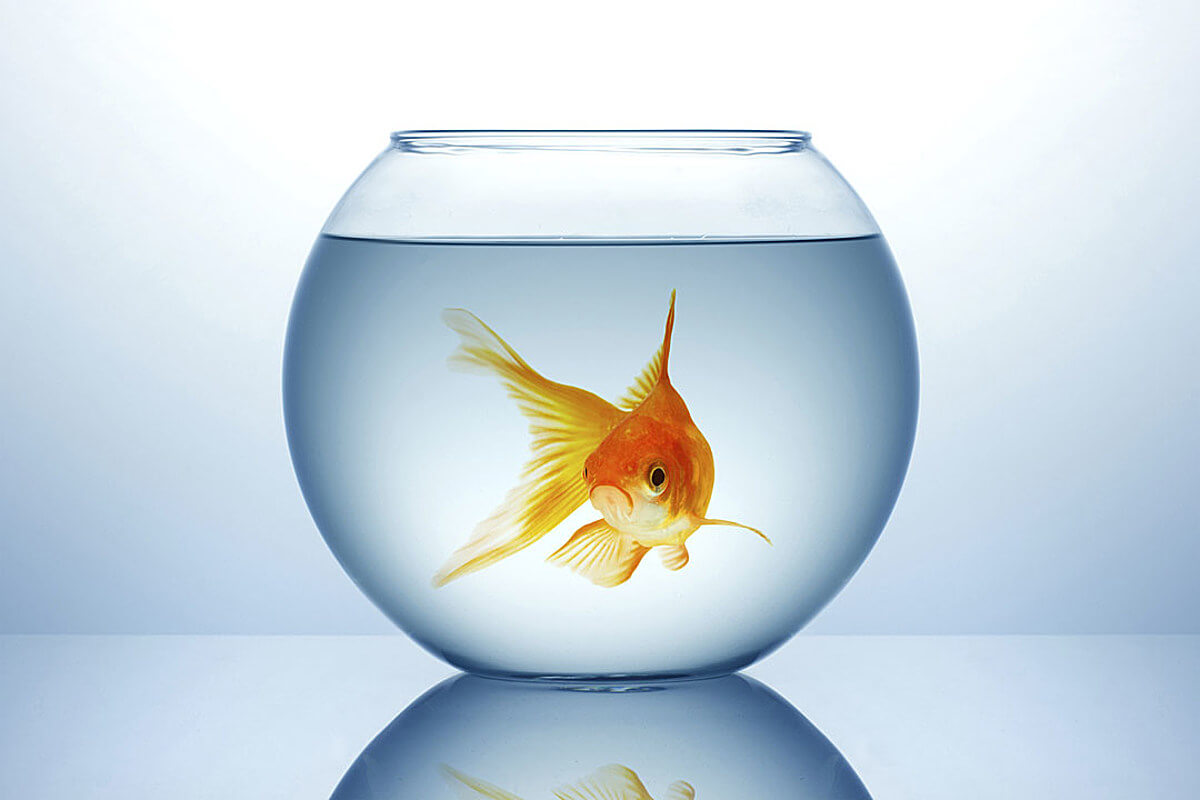
Overfeeding goldfish can lead to health issues that are visible through their appearance and behavior.
Here are some key signs of overeating to look out for:
-
Swollen Abdomen: Overfeeding causes bloating and an abnormally large, swollen belly. This is a clear indicator the fish is being fed too much.
-
Floating Issues: Overfed goldfish may have buoyancy problems and struggle to stay submerged, instead floating to the top of the tank. This is often due to swim bladder disorders from too much food.
-
Constipation: Excess food can cause constipation and block the goldfish’s digestive tract. The fish may show signs of discomfort and have trouble swimming or staying upright.
Overfeeding has serious health consequences for goldfish. Carefully monitoring their food intake and appearance allows owners to avoid overfeeding issues. Key signs like abdominal swelling, floating problems, and constipation indicate the fish is getting too much food. Adjusting feeding amounts can help resolve these overeating symptoms.
Conclusion
In summary, goldfish are omnivorous and will eat both plant and animal matter. In the wild, they feed on insects, crustaceans, plants and detritus. In captivity, they should be fed a varied diet including high-quality fish flakes and pellets, vegetables, and occasional treats like bloodworms or brine shrimp. While goldfish may eat small fish if given the opportunity, this is not recommended as it risks introducing disease and may lead to aggressive behavior.
Owners should aim to feed their goldfish a nutritious and balanced diet, avoiding overfeeding. Signs of overeating include lethargy, buoyancy issues, and reduced appetite. With proper care and feeding, goldfish can live long, healthy lives in captivity. The key is providing a varied diet in moderation, maintaining excellent water quality, and monitoring your fish for signs of overeating or illness. By following these best practices, goldfish keepers can enjoy their unique and engaging pets for many years to come.
